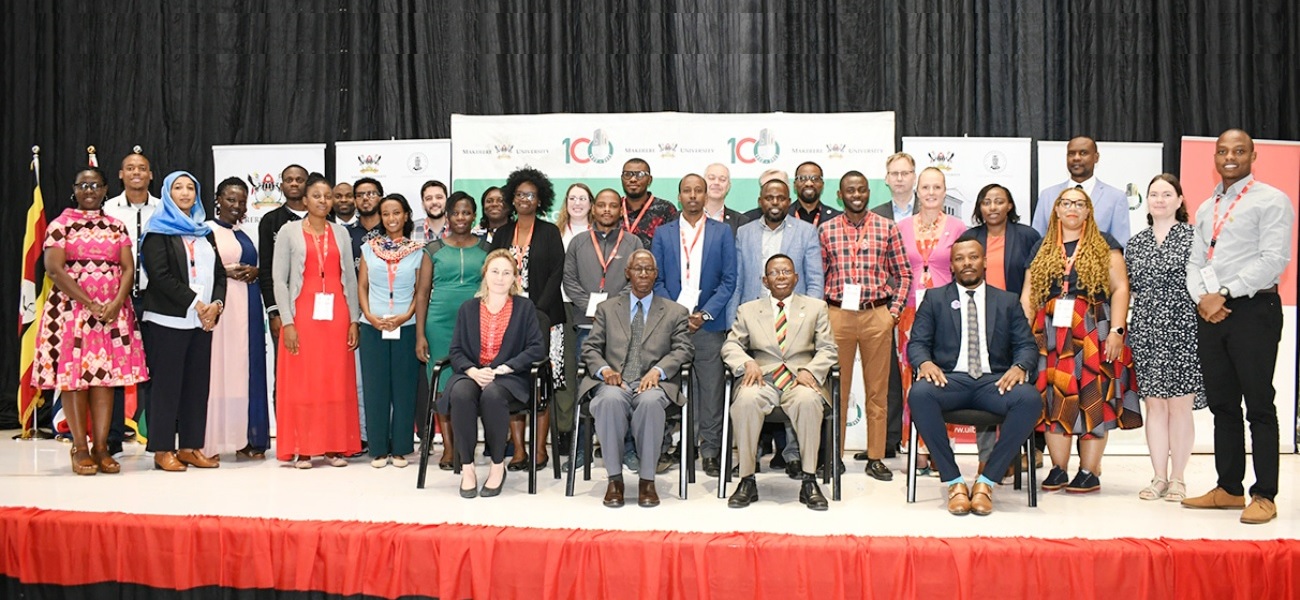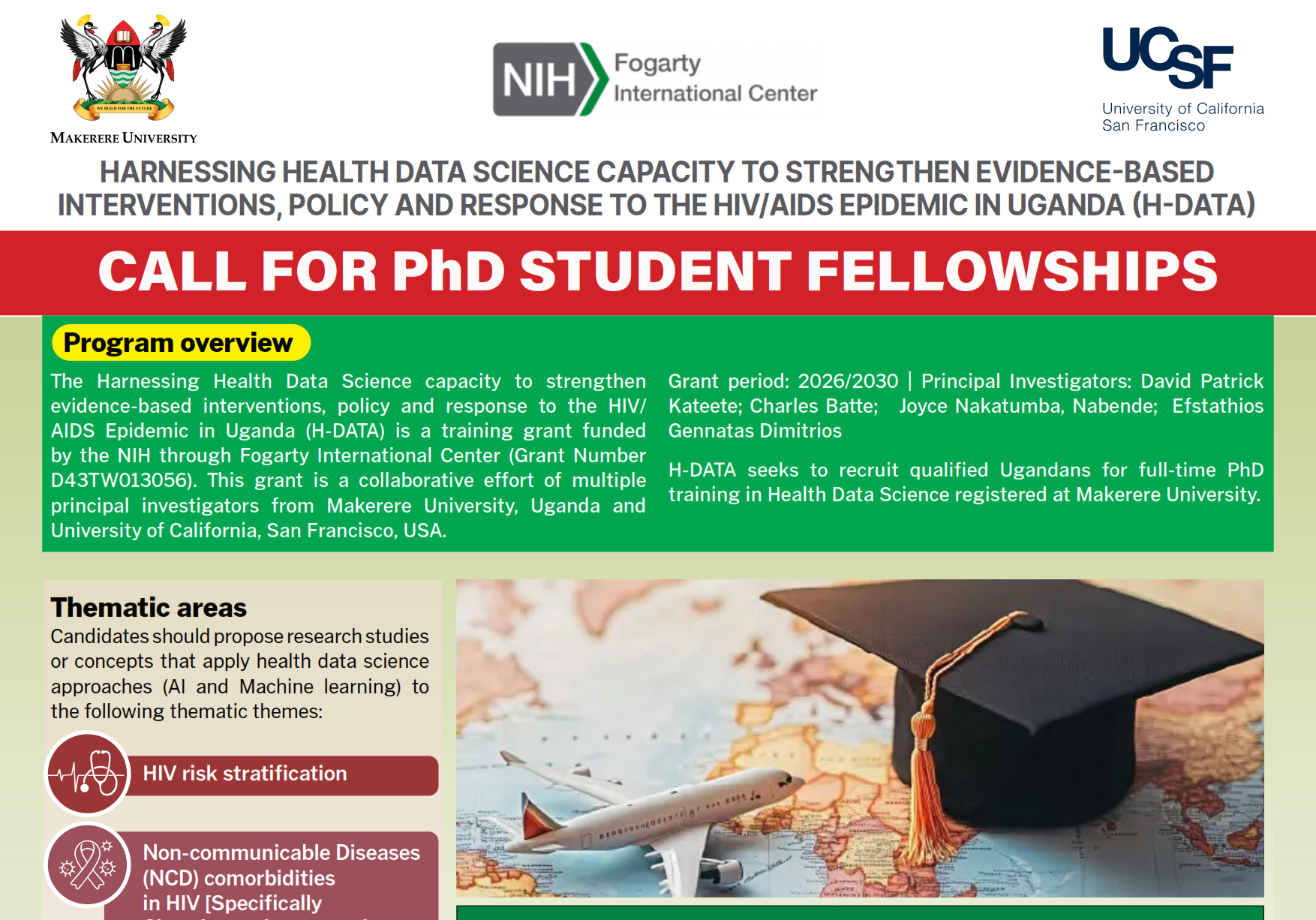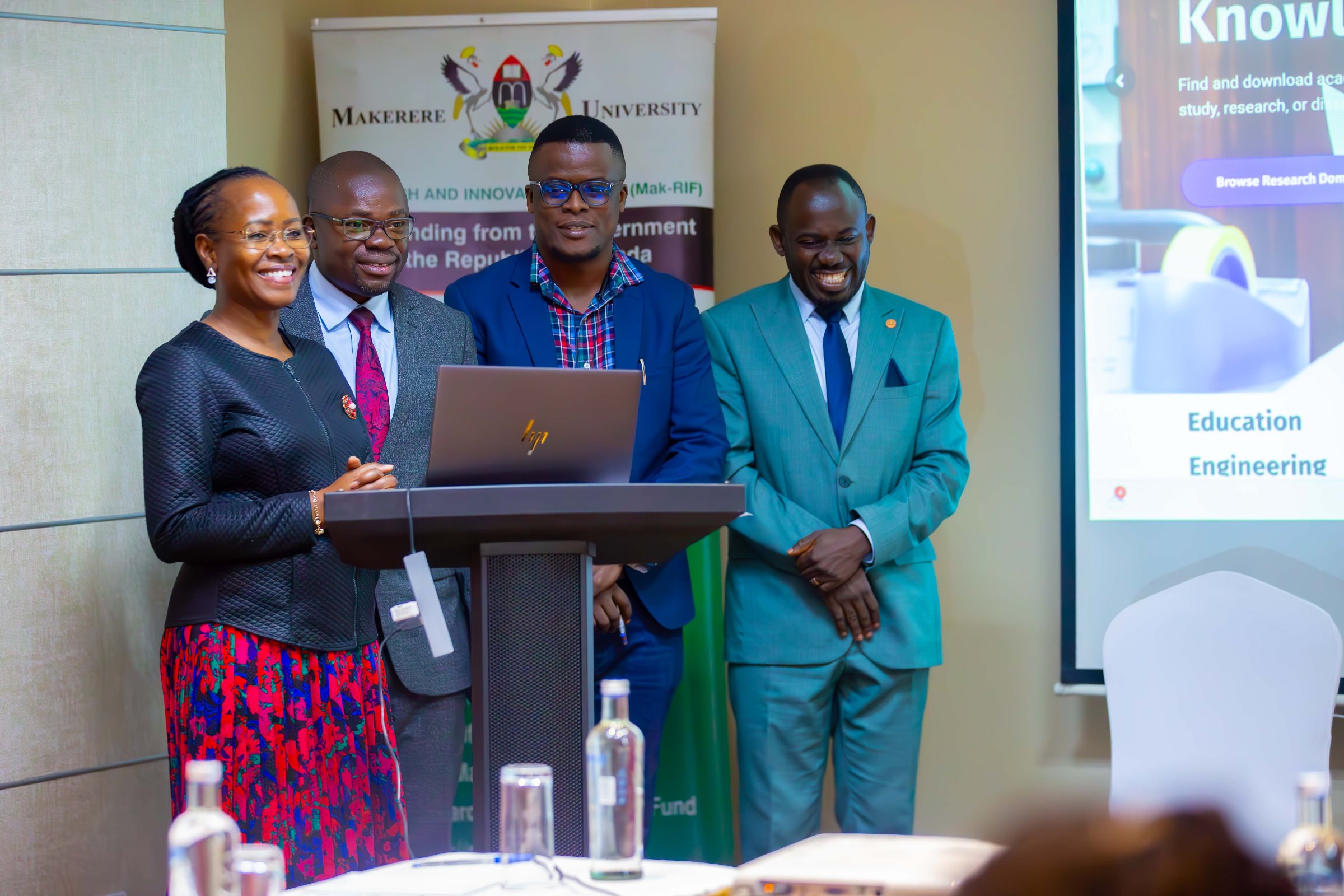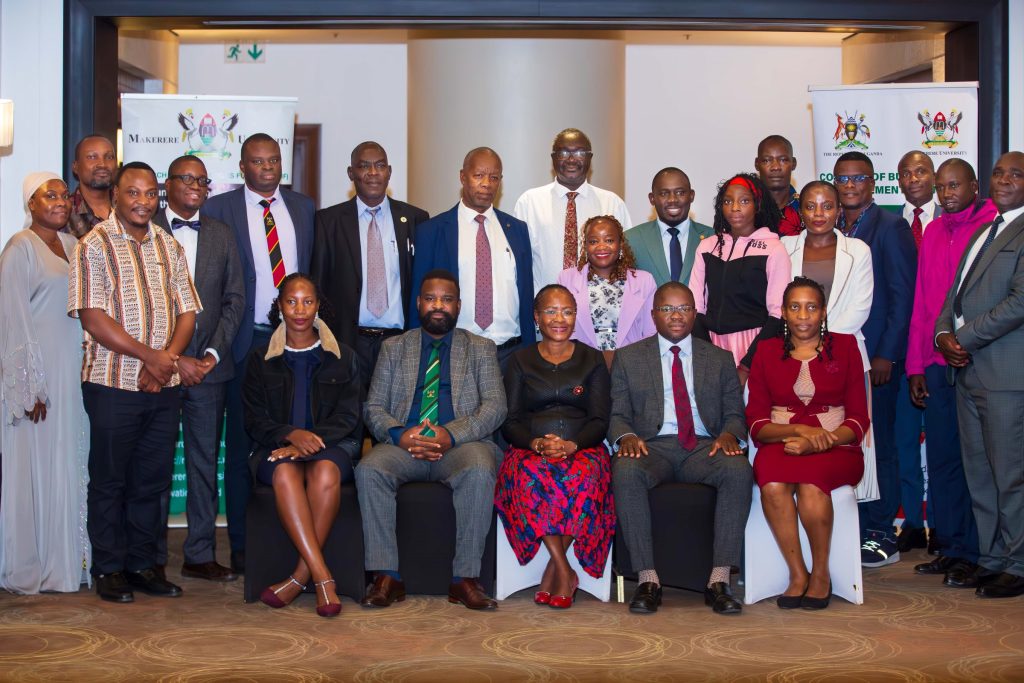The first ever Makerere-University of Bergen Research School (MBRS) got underway at the Yusuf Lule Central Teaching Facility Auditorium on Monday 28th November 2022. Held as part of activities to celebrate Makerere University’s 100 years of excellence and 35 years of close collaboration with the University of Bergen (UiB), the MBRS was officially opened by the Ambassador of Norway to Uganda H.E. Elin Østebø Johansen. In attendance was the Academic Registrar Prof. Buyinza Mukadasi who represented the Vice Chancellor Prof. Barnabas Nawangwe, Vice Rector University of Bergen Prof. Benedicte Carlsen, who attended virtually from UiB, researchers, MBRS facilitators and participants as well as staff of Makerere.
Set to be held from 28th November to 9th December 2022, the MBRS attracted twenty-eight (28) student participants, twenty-two (22) of whom will be physically present at Makerere University, while six (6) will attend virtually from the hub at UiB. Fifteen (15) of the students are female while thirteen (13) are male. The students are from sixteen (16) nations namely; the Democratic Republic of Congo (DRC), Egypt, Ethiopia, Ghana, Jordan, Kenya, Malaysia, Mexico, the Netherlands, Nigeria, Norway, Philippines, Rwanda, South Africa, Uganda and Zimbabwe.
Additionally, students are drawn from sixteen (16) different universities namely; Addis Ababa University, University of Bergen, University of Cape Town, Estonian University of Life Sciences, University of Ghana, University of Ibadan, Kampala International University, University of KwaZulu-Natal, University of Leeds and Makerere University. Others are; Obafemi Awolowo University, University of Oslo, The Regional Centre for Sustainable Adaption to Global Change in the Middle East (SAGE), University of the Western Cape and Wuhan Botanical Garden, Chinese Academy of Sciences (CAS).
Prof. Buyinza in his welcome remarks thanked Ambassador Elin Østebø Johansen for always honoring invitations to events at Makerere and actively cultivating a warm and cordial relationship between the Royal Norwegian Embassy and the University.
“The spirit of our partnership is built first and foremost on strong personal relationships between the faculty of the two institutions, and constant communication as supported by the two collaboration offices set up and funded by either institution” remarked Prof. Buyinza.
He added that the University of Bergen is the only institution that has had a permanent presence at Makerere University since 1992. This active partnership, he noted, is partly responsible for Makerere and the University of Bergen’s winning six (6) projects under the NORHED II programme, two (2) projects under the NORPART programme, one (1) project under the Norwegian Research Council and at least two individually funded PhDs.
Turning to the MBRS, Prof. Buyinza noted that the initiative is based upon the successes of the Bergen Summer Research School (BSRS), which has been running since 2008 at the University of Bergen under its global challenges programme.
“The overall goal of the Makerere-Bergen Research School is to implement a regular PhD Research School in the global south, increasing the internationalization of Makerere University towards global excellence and enhancing regional collaboration among African universities through south-south and north-south mobility” added Prof. Buyinza.
H.E. Elin Østebø Johansen in her remarks congratulated the two institutions upon commemorating Makerere’s 100 year anniversary and 35 years of cooperation by holding the MBRS in Uganda. She acknowledged that the School’s theme; Food and Water Security in a changing World, is highly relevant to many countries in both the Global North and South.
“Climate change is a reality, so is the fact that without having contributed significantly to the situation in terms of emissions, countries in Africa are the hardest hit… their national economies are highly dependent on the agricultural sector. This implies severe problems and crises for economies and people in general” observed H.E. Johansen.
She added that knowledge and fact-based understanding of underlying processes and developments is one of the most important tools in Norway’s development assistance portfolio with partner countries. The Ambassador therefore emphasized the role of research as a mechanism for establishing knowledge and evidence from which decisions can be made. The Ambassador reiterated that Norway’s philosophy on collaboration in research with its partners in all academic fields, which prioritizes inclusiveness as a means of ensuring green and sustainable results.
Vice Rector Prof. Carlsen acknowledged that UiB’s collaboration with Makerere that goes back to 1988 is one of the longest standing relationships her institution has had with any other University. She added that the MBRS is a natural development from the longstanding collaboration aimed at addressing research priorities at both universities.
“The close collaboration is a prime example of longstanding research collaboration that turns into individual friendship and trust. That trust is the strong foundation for achieving goals and building for the future together; bringing South and North together to address common challenges and finding common solutions” added Prof. Carlsen.
The Mak-UiB Collaboration Coordinator for Makerere University Dr. Ronald Semyalo, noted that the MBRS is similar to other activities held under the auspices of the Uganda-Norway Alumni Association. Such activities, he said, include the Annual SDGs and Youth Programme, generously supported by the Norwegian Embassy. He added that the Mak-UiB Collaboration is built on long term intentions with the aim of roping in even more institutions through activities such as the MBRS.
“And that is what we have done here. We have invited young researchers from very many countries and we believe that our interactions here will build on that collaboration (with the University of Bergen)” explained Dr. Semyalo.
To set the pace for the MBRS, Dr. Lwando Mdleleni, a Senior Researcher and the University of Western Cape delivered a keynote address on “Higher Education partnerships and the Sustainable Development Goals for Developing countries”. The four part address tackled: Higher Education Institutions as catalysts for sustainable development; How to build partnership models to accelerate SDGs; North-South partnerships as reflected in the UNESCO report; and the Role of emerging scholars in advancing SDGs.
The keynote presentation was followed by a panel discussion on SDGs with particular focus on SDG4 (Quality Educaiton) and the role of the youth moderated by UiB alumnus and Senior Gender Officer in the Gender Mainstreaming Directorate, Makerere University, Mr. Eric Tumwesigye. Panelists included; Mr. Theogene Habumugisha a UiB Global Challenges PhD Candidate, Ms. Alicia Barraclough a postdoctoral researcher associated to the University of Bergen UNESCO Chair, Dr. Perpetra Akite one of Uganda’s leading entomologists and Lecturer in the College of Natural Sciences (CoNAS), Makerere University and Mr. Jostas Mwebembezi the Fonder, Executive Director and Senior Research Consultant of Rwenzori Center for Research and Advocacy (RCRA).


 Humanities & Social Sciences1 week ago
Humanities & Social Sciences1 week ago
 General1 week ago
General1 week ago
 Health2 weeks ago
Health2 weeks ago
 Agriculture & Environment2 weeks ago
Agriculture & Environment2 weeks ago
 General2 weeks ago
General2 weeks ago















